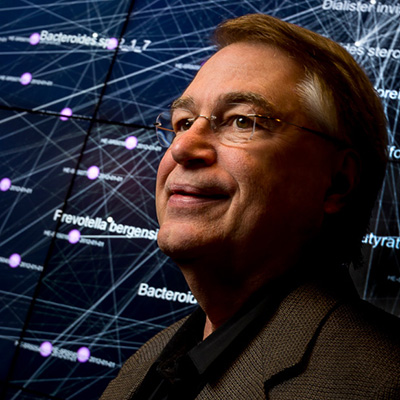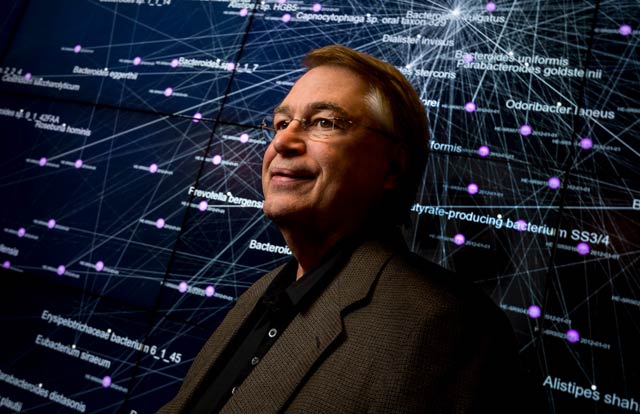
CSE Professor and Calit2 Director Larry Smarr was in Boston Feb. 18 for his induction to be a Fellow of the American Association for the Advancement of Science (AAAS). He is one of five faculty of the University of California San Diego elected in 2016 and inducted during the annual meeting of the AAAS. The other newly-elected Fellows include: Economics professor Richard Carson; Bioengineering professor David Gough; Scripps Institution of Oceanography research hydrologist Konstantine Georgakakos, and physical oceanography professor Lynne Talley, also at Scripps. The five were among 391 Fellows elected last October in recognition of their contributions to innovation, education and scientific leadership.

Diego faculty elected Fellows of the American Association
for the Advancement of Science (AAAS) in 2016.
In naming Smarr a Fellow, AAAS cited his track record of “leadership in scientific computing, high-performance computing, and cyberinfrastructure.” He is widely recognized for having driven major developments in information infrastructure, including the Internet, Web, scientific visualization, virtual reality, and global telepresence. Prior to the creation of Calit2 in 2000, Smarr spent 20 years as a professor of physics and astronomy at the University of Illinois at Urbana-Champaign, where he was also the founding director of the National Center for Supercomputing Applications (NCSA). Before that, he was lead author on the first proposal asking NSF to invest in U.S. supercomputing centers to serve university researchers. The supercomputing proposal grew out of Smarr’s research, which required massive-scale computer processing to study the dynamics of radio jets, accretion disks orbiting black holes, supernovae, neutron star collisions, and gravitational waves, including modeling the head-on collision of two black holes (the subject of his doctoral dissertation). Smarr earned his Ph.D. in physics from the University of Texas at Austin in 1975.
A fellow of the American Physical Society since 1991 and the American Academy of Arts and Sciences since 1994, Smarr was elected a member of the National Academy of Engineering in 1995. In 2006 the IEEE Computer Society gave him its Tsutomo Kanai Award for lifetime achievements in distributed computing systems. That same year, Smarr also received the ESRI Lifetime Achievement Award. In 2014 Smarr was honored with the congressionally-supported Golden Goose Award for how his work on calculating black hole collisions led to dramatically enhanced U.S. computing power.

